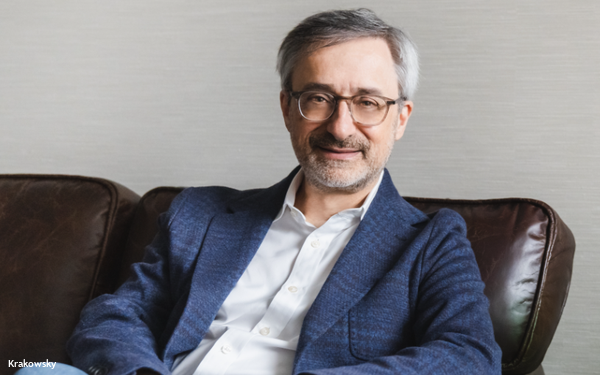
Interpublic Group met its organic growth and margin goals
for 2023 but as the company expected, growth slowed considerably in Q4 to 3.8% versus 7% for the full year.
For 2023, IPG is forecasting growth of between 2% and 4%. When pressed by analysts
on a Thursday morning earnings call for more specificity, CEO Philippe Krakowsky said the range reflected the growing sense of uncertainty in the market about the macroeconomic picture but that
“we’re comfortable with the midpoint of that range.”
Krakowsky also acknowledged that the company expects to have a “stronger back half” to the year, given
first-half headwinds in part due to the loss of a major food and beverage client last year.
The IPG chief also pointed to two of its big digital shops—R/GA and Huge—as a drag on
results both last year and heading into 2023. As he pointed out last year, both agencies are feverishly working on new go-to-market propositions. He said that Huge is expected to unveil its new
proposition later this quarter.
advertisement
advertisement
Asked what went wrong with the two former “superstars” as one analyst described them, Krakowsky responded that it’s not unusual for
“leading edge” agencies to “reconfigure” every three to five years in order to stay leading edge.
Clients are all over the board with their current views of the economy
and how they should respond to it via marketing budgets this year, Krakowski said. And there is general caution and concern about whether there will be a downturn sometime in 2023.
“Clients are approaching 2023 with equal parts conviction in the need to be in the market, as well as an increased level of conservatism.,” he said. “That’s not to say they
are any less focused on the need to drive for growth into the new year, or to invest in the transformation of their businesses. It’s just that we are seeing budgeting decisions made with more
deliberation. And it also fair to say there’s significant variability within the client portfolio from client to client.”
Asked about the pitch pipeline this year Krakowsky said it
will likely “pick up steam” after a pandemic-related backlog over the past couple of years. Right now he added, a major new round of pitches is more in the rumor phase “than the
reality.” R3 Worldwide recently reported that agency revenue from new
business pitches was down 35% last year.
IPG took a $568.4 charge for 2022 related to efforts to reduce its real estate portfolio given shifts in the company’s workforce model including
more work-from-home hours. With the reductions, the company expects to save $20 million annually that will kick-in over the next couple of years.
Strong sectors include auto, health and
finance, while tech companies are reducing commitments or not yet committing to full-year budgets.
In Q4 all operating segments grew organically. Media, Data & Engagement Solutions
reported 5% growth led by double-digit growth at IPG Mediabrands. The Integrated Advertising & Creativity Led Solutions segment grew 2.6%, paced by IPG Health, which posted high single digit
growth. Specialized Communications & Experiential Solutions grew 3.5% “with leadership from the full range of our Experiential and Sports Marketing offerings,” Krakowsky
said.
Growth in the U.S., which accounted for 63% of IPG’s fourth quarter net revenue, grew 2.4% organically, on top of 12.1% in last year’s fourth quarter.
Company CFO
Ellen Johnson reported on the earnings call that the firm ended Q4 with total headcount of 58,400, an increase of 5% from a year ago. “Our expenses for temporary labor, performance-based
incentive compensation and severance were all notably lower than a year ago,” she said.
“Enterprise marketing suites like Salesforce and Adobe form the foundation of so many
brands’ marketing technology stack, and our company can serve as a bridge between those brands, their consumers, and these platforms, strengthening every touchpoint of the customer
journey,” Krakowski said. “We continue to invest in this important growth area,” he added, noting the acquisition of Salesforce specialist RafterOne last fall.